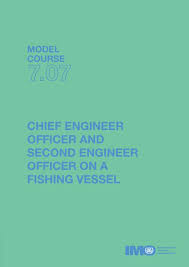 This course is structured around three core functions, reflecting the key responsibilities of management-level personnel. It's designed to meet the minimum competency standards outlined in Regulation II/5 of the 1995 STCW-F Convention for chief and second engineer officers on fishing vessels with main propulsion machinery of 750 kW or more. For clarity, the course is divided into three functional areas: Marine Engineering: Covering aspects related to the ship's hull and structure.
Electrical and Control Engineering: Focuses on the electrical systems and control mechanisms on board. Controlling Operations and Caring for Personnel: Deals with managing the overall operation of the vessel and ensuring the safety and well-being of the crew. Each of these functions is explored in three parts: A, B, and C. Part A: This section lays the groundwork for each function by stating its aims and objectives. It also includes suggestions for suitable teaching facilities, equipment, helpful resources such as teaching aids, and lists relevant IMO references and textbooks. Part B: This part provides a general outline for lectures, demonstrations, and practical exercises within each functional area. There is no strict timetable to follow. The most important thing is that trainees achieve the minimum competency standards defined in Regulation II/5 of the 1995 STCW-F Convention.
Trainees will learn better if they are allowed to learn at their own pace. Part B also includes guidance notes and additional explanations to help clarify topics. Part C: This provides a comprehensive teaching syllabus. This syllabus aligns with the knowledge requirements in Regulation II/5 of the STCW-F Convention and is based on guidance from the Document for Guidance on Training and Certification of Fishing Vessel Personnel. This details the knowledge required for learning.
This will assist the teacher in lesson design. A separate IMO model course is dedicated to the "Assessment of Competence" which explains the various methods for demonstrating competence. The "Document for Guidance on Training and Certification of Fishing Vessel Personnel" includes tables of competency units and functional skill components. These can be used to evaluate the competence of engineer officers on fishing vessels.
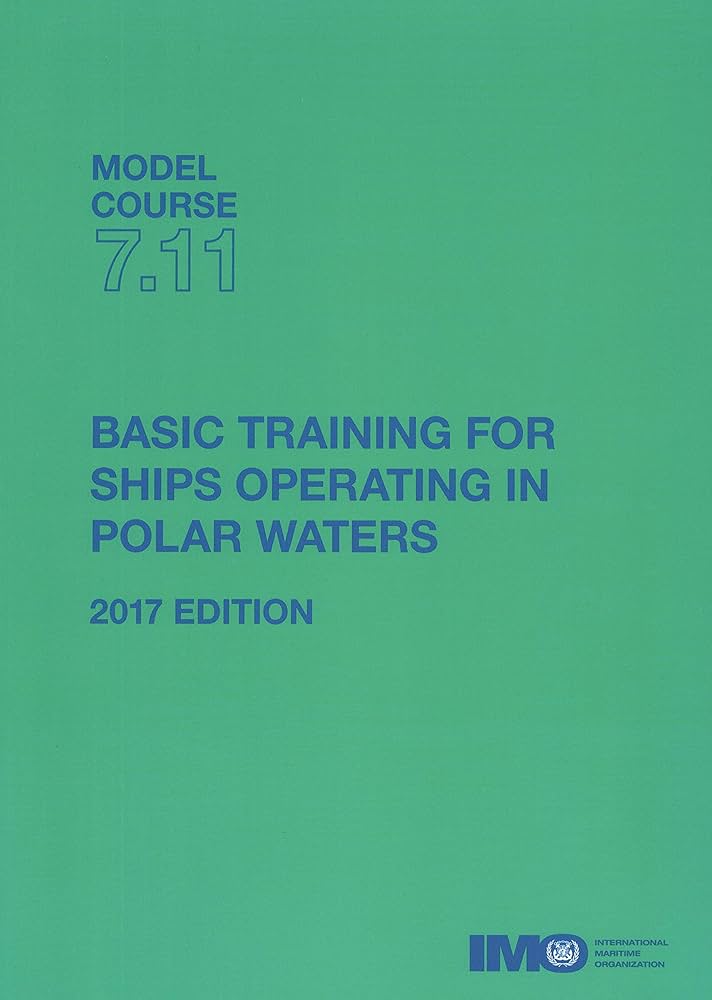 Ships operating in the Arctic and Antarctic environments face a range of unique risks. Harsh weather conditions and the scarcity of detailed charts, communication infrastructure, and navigational aids present significant challenges for mariners. The remote nature of these regions complicates rescue and environmental cleanup operations, making them difficult and costly endeavors.
Extremely cold temperatures can impair the functionality of various ship components, including deck machinery, emergency equipment, and sea suctions. The presence of ice further adds to these challenges by exerting additional loads on the hull, propulsion systems, and appendages.
While the Arctic and Antarctic waters share certain similarities, they also exhibit important differences. The Arctic is an ocean encircled by continents, whereas the Antarctic is a continent surrounded by ocean. During summer, Antarctic sea ice retreats substantially or is dispersed by permanent gyres located in the Weddell and Ross Seas, resulting in relatively little multi-year ice. In contrast, Arctic sea ice persists through many summer seasons, with a considerable amount existing as multi-year ice. Although both polar marine environments are vulnerable to similar threats, responses must be tailored to the specific legal and political frameworks governing each region.
This course provides training for navigation officers to operate ships safely in polar waters, addressing additional considerations beyond the existing requirements of SOLAS and MARPOL conventions. It emphasizes understanding the unique climatic conditions of polar regions and ensuring compliance with standards for maritime safety and pollution prevention.
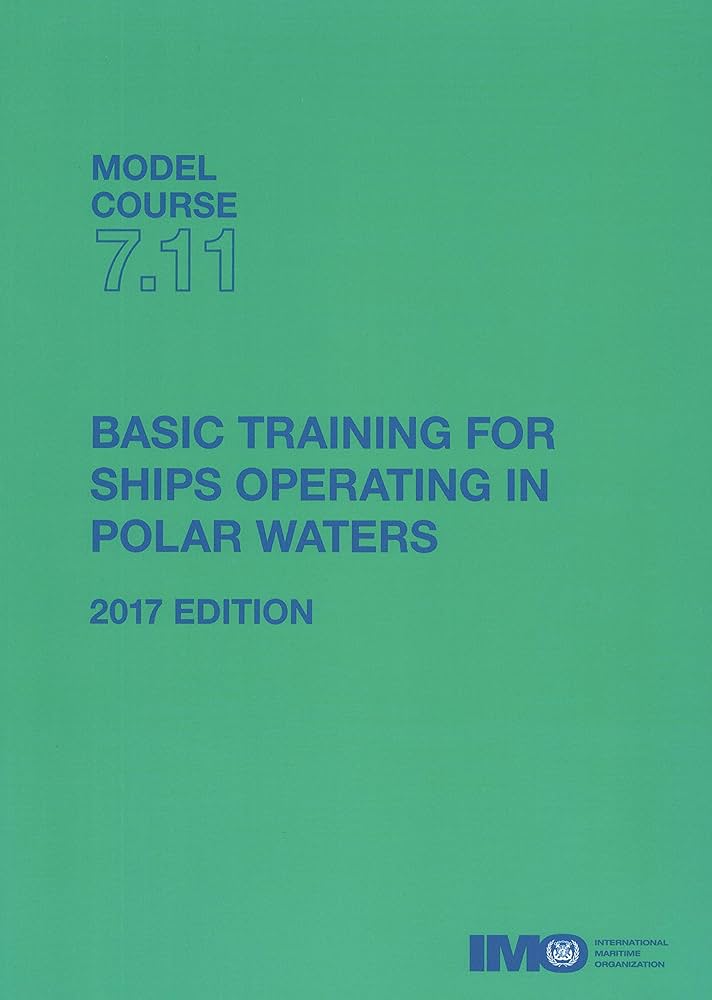 Ships operating in the Arctic and Antarctic environments face a range of unique risks. Harsh weather conditions and the scarcity of detailed charts, communication infrastructure, and navigational aids present significant challenges for mariners. The remote nature of these regions complicates rescue and environmental cleanup operations, making them difficult and costly endeavors.
Extremely cold temperatures can impair the functionality of various ship components, including deck machinery, emergency equipment, and sea suctions. The presence of ice further adds to these challenges by exerting additional loads on the hull, propulsion systems, and appendages. While the Arctic and Antarctic waters share certain similarities, they also exhibit important differences.
The Arctic is an ocean encircled by continents, whereas the Antarctic is a continent surrounded by ocean. During summer, Antarctic sea ice retreats substantially or is dispersed by permanent gyres located in the Weddell and Ross Seas, resulting in relatively little multi-year ice. In contrast, Arctic sea ice persists through many summer seasons, with a considerable amount existing as multi-year ice. Although both polar marine environments are vulnerable to similar threats, responses must be tailored to the specific legal and political frameworks governing each region.
This course provides training for navigation officers to operate ships safely in polar waters, addressing additional considerations beyond the existing requirements of SOLAS and MARPOL conventions. It emphasizes understanding the unique climatic conditions of polar regions and ensuring compliance with standards for maritime safety and pollution prevention.
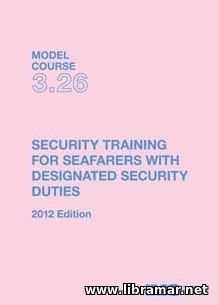 The material of the present IMO model course is arranged in nine main parts. The first part gives some introduction to the subject of security awareness and its critical importance, and gives some brief information on the vessel and port operations. The second part is dealing with the maritime security policy, and here the trainees will reach some familiarity with the relevant legislation including the international conventions and codes, as well as the officially published recommendations.
The third part addresses the security responsibilities including the ones of the operating company, vessel, SSO, CSO, and PFSO, standing for the Ship Security Officer, Company Security Officer, and Port Facility Security Officer, respectively. The ship security assessment is discussed in a separate part of the volume, followed by the one on the security equipment, systems and their operational limitations, maintenance and testing.
After that the trainees learn how to identify, recognize, and respond to the different threats. The remaining parts of the course give necessary information on the security administration, emergency preparedness, drills, and ship security actions.
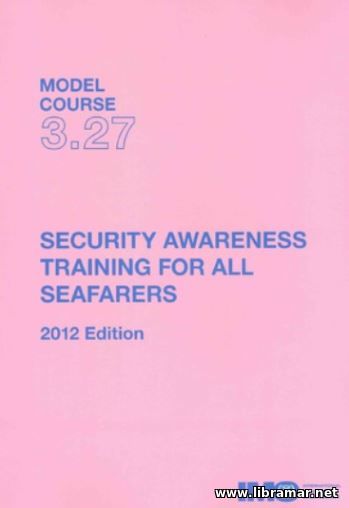 The main content of the present IMO model course was prepared to give readers all required understanding of the security awareness and make sure that the ship crew members with no security duties assigned relating to the SSP, i.e. Ship Security Plan, to participate and contribute in the ship security.
The trainees who complete all chapters of the present course will be considered having enough knowledge, therefore reaching the necessary competence standard. They will get to know the meaning of the different ship security levels and associated requirements, contingency plans and emergency measures.
In addition to that, they will get better in the recognizing and detecting different types of weapons and dangerous substances, as well as the human behavioral patterns. Apart from that, this training will equip trainees with the necessary techniques that are commonly applied to circumvent the ship security measures, and this particular skill is definitely critical to provision of the security of your vessel.
The maritime security policy and security responsibilities are detailed together with the ship security actions. Due attention was paid to the identification of the threats, their recognition and prevention, as well as shipboard exercises, drills and emergency preparedness.
 The content of the present training course has been developed on the basis of the training guidelines released by the world respected SIGTTO earlier, as well as the materials provided by the Directorate of Shipping. The trainees will start with the familiarization section covering such aspects as ship simulation and tank arrangement, piping and associated systems, instrumentation, cargo containment, essential procedures and operations.
Then, they will proceed to the special operations and procedures including tank ventilation, cargo liquefaction and boil-off matters, gas freeing, inert gas systems etc. After that, they will go through two sections addressing the ballast and cargo operations including ballasting/deballasting, cargo handling, plus the procedures to be followed when loading and unloading.
The closing section of the course deals with the different real life operational problems together with the associated remedial actions. The course is highly recommended to the crew members of the vessels transporting the LPG, or liquefied petroleum gas, and the trainees who have satisfactorily completed all items, will be considered duly prepared for working on board such ships.
 The content of the present course will provide a good introduction to the assessment of the seafarers, as well as their certification and examination, with the primary focus placed on the associated internationally accepted regulatory framework and practice.
Upon completion of the course, the students will be considered provided with sufficient knowledge and obtained necessary skills to be able to conduct administration, supervision and monitoring of the assessment and professional training of the seafarers as per the relevant provisions of the STCW Convention and Code.
They should also be able to perform evaluation and application of the processes needed for implementation of the aforementioned provisions in accordance with the national law, understand the methods and process of the national assessment and examination, be able to choose the proper methods of assessment, get involved in the organization and administration of the assessment activities.
Of course, they will also be able to show their ability to issue the certification paperwork and control the whole process of assessment, examination and certification. Make sure you have checked the content before you start the course.
 This is the final draft of the IMO Model Course dealing with the energy efficiency on board marine ships. The intention is to promote the good technical training of the shipboard personnel in order to eventually improve the efficiency of using the energy on board.
As a result, this would eventually contribute to the protection of the environment, following the guidelines outlined in the IMO Resolutions nos. A.998(25) and A.947(23) through introducing and implementing the best practices. This, in turn, would allow achieving significant reduction in the amount of the GHG emissions. In addition to the above, the present course is covering the basic subjects intended to develop the managerial instruments to be applied by the shipping companies for the management of the environment protection.
The trainees who have completed all parts of the training will be considered aware and proficient in identification of the actions and considerations taken by the IMO in the field of greenhouse gas reduction, development and application of the associated industry best practices, establishing the SEEMP, i.e. the ship energy efficiency management plans, and maintaining the subject plan at all times.
|







